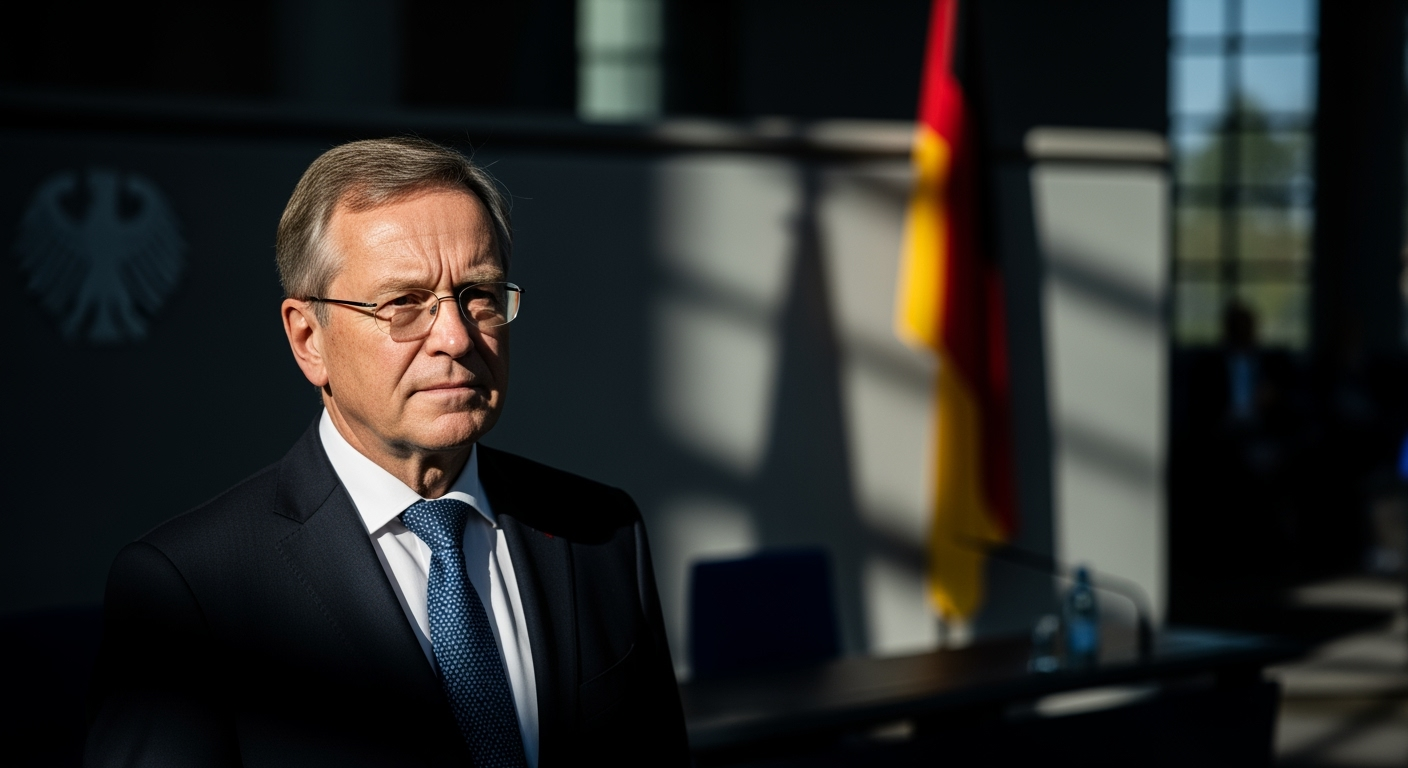Related Articles

Brazil Greenlights Offshore Oil Drilling Near Amazon Mouth Amid Environmental Outcry

Historic White House East Wing Demolition Underway for New Ballroom





Germany's political landscape is undergoing a significant transformation, marked by the ascendance of the far-right Alternative for Germany (AfD) and a decisive declaration from the leader of the center-right Christian Democratic Union (CDU), Friedrich Merz. In a stark pronouncement, Merz has identified the AfD as his party's "most important opponent" in upcoming elections, signaling a hardening of resolve to counter the populist surge that has rattled the nation's traditional political order. This declaration underscores a critical juncture for German democracy, as mainstream parties grapple with an evolving electorate and the increasing influence of a party once considered a fringe movement.
The German federal elections in February 2025 delivered a seismic shift, with the Christian Democratic Union (CDU) emerging as the largest party with 28.6% of the vote, positioning Friedrich Merz to become the next Chancellor. However, the most striking outcome was the Alternative for Germany (AfD) securing an unprecedented second place, more than doubling its 2021 vote share to 20.8%. This result catapulted the AfD into a dominant position in the opposition and highlighted a profound disillusionment among voters with established parties. The AfD's success was not uniform but showed particular strength in eastern German states, where it often became the leading political force, and it also made inroads in western constituencies. This electoral performance signals that the fragmentation of Germany's party system is likely to persist, presenting complex challenges for future governance.
Against this backdrop of a surging AfD, Friedrich Merz has articulated a clear and unyielding position, stating unequivocally that the AfD is the CDU's "most important opponent" in the electoral arena. He emphasized that his party would "never" work with the far-right group, rejecting any notion of dismantling the "firewall" that historically separates the CDU from the AfD's ideological framework. Merz's commitment extends to ruling out any form of coalition or cooperation, including minority governments, underlining his resolve to "make it small again" and relegate it to a "footnote" in German politics. This firm stance by the CDU leader reflects a broader strategy to preserve democratic integrity and uphold the constitutional foundations of the Federal Republic of Germany against a party he views as fundamentally opposed to these principles.
Merz's strong declarations have, however, been accompanied by a complex and at times contradictory political dance. He faced considerable criticism following a non-binding parliamentary motion on border policy that garnered support from the AfD, a move seen by many as inadvertently breaching the long-standing "firewall" against cooperation with the far-right. This incident, involving a proposal for stricter measures to address irregular immigration, sparked public protests and even drew a rebuke from former Chancellor Angela Merkel, highlighting the sensitivity surrounding any perceived legitimization of the AfD. Despite these controversies, Merz has maintained that his position remains steadfast and that he did not and will not engage in formal collaboration with the AfD. The incident underscored the difficulty mainstream parties face in addressing key voter concerns, such as migration, without appearing to validate the AfD's agenda, which has skillfully framed immigration as a security threat and capitalized on public anxieties.
Merz's declared strategy has significant implications for the CDU and the broader trajectory of German democracy. By framing the contest with the AfD as a defense of democratic norms rather than routine political rivalry, Merz aims to rally centrist voters and differentiate his party sharply from the far-right. The CDU now faces the intricate task of delivering tangible solutions to Germany's pressing economic and social challenges, such as inflation, rising living costs, and economic stagnation, which have been key drivers of the AfD's appeal. Should the CDU-led government fail to adequately address these concerns, the AfD's influence could continue to grow. Furthermore, the AfD, now the second-largest party, is expected to play a significant role in opposition, potentially adopting obstructionist tactics to undermine the new government and further strengthen its own position ahead of future elections. The ongoing internal debate within the CDU regarding its approach to the AfD also highlights the challenge of maintaining party unity while navigating a volatile political climate.
The rise of the AfD and the CDU's response have ramifications that extend beyond Germany's borders. The AfD's anti-immigrant, nationalist, deeply euroskeptic, and sometimes pro-Russian rhetoric poses a direct challenge to trans-Atlantic security and European unity. The party's skepticism of NATO, alignment with authoritarian regimes, and calls for a "Deutschland exit" (Dexit) from the European Union, albeit with softened language recently, could destabilize existing alliances and the rules-based international order. As Germany, a key player in the European Union, grapples with this internal political shift, its ability to act as a stable anchor in international affairs could be tested. The upcoming Merz chancellorship will therefore face immense pressure not only to stabilize domestic politics but also to reaffirm Germany's commitment to European cooperation and international partnerships in the face of burgeoning populist forces at home. The choices made in Berlin in the coming months will undoubtedly shape not just Germany's future, but potentially the stability and direction of Europe itself.